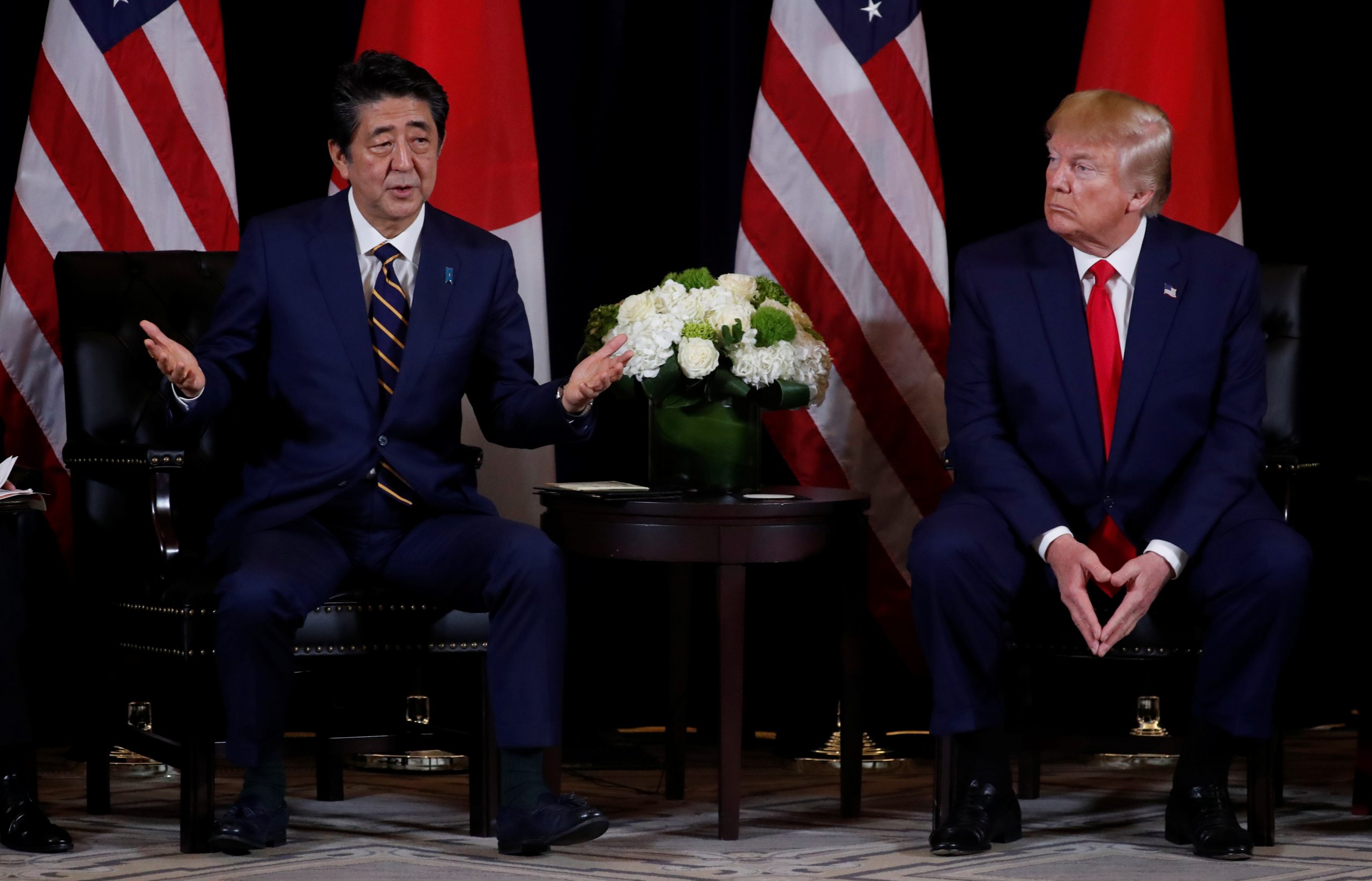Former Japanese Prime Minister Shinzo Abe was assassinated Friday at a political rally.
Tetsuya Yamagami, 41, was arrested at the scene, according to the South China Morning Post.
Police said he used what they called a “home-made gun” to kill Abe.
Political violence is rare in Japan, a country with strict gun regulations. The gun used in the shooting of Shinzo Abe appeared to be a home-made firearm https://t.co/7yj5STgXit pic.twitter.com/PrxnqviU7G
— Daily Mail Online (@MailOnline) July 8, 2022
Local media reports said Yamagami was a former member of the Japan Maritime Self-Defense Force.
Newsweek quoted local police as saying he told them he “aimed to kill” and was dissatisfied with Abe.
Suspect in ex-Japan PM Shinzo Abe’s shooting arrested, gun recovered#ITCard #ShinzoAbe #Japan
Read more: https://t.co/ctevQJuqAy pic.twitter.com/7vzoZTeRnY— IndiaToday (@IndiaToday) July 8, 2022
Witnesses reported a man approached Abe from behind while the 67-year-old politician was giving a speech supporting the candidate of his Liberal Democratic Party in Nara as part of the upcoming Japanese elections.
One shot was heard, with no apparent impact. Abe fell after a second shot.
Former Prime Minister Shinzo Abe was injured in an apparent gun attack while taking part in a campaign for the House of Councillors election in Nara City at about 11:30 a.m. on Friday. He suffered cardiopulmonary arrest and has been taken to hospital, according to firefighters. pic.twitter.com/SgKZEvZS9j
— The Japan News (@The_Japan_News) July 8, 2022
Yoshio Ogita, 74, a leader in the local chapter of the LDP, said he heard the shots and saw white smoke.
“I didn’t know what had happened,” he said, according to The New York Times. “I saw him collapse.”
Officials said Abe was shot on the right side of his neck and left side of his chest.
Hidetada Fukushima, the professor in charge of emergency medicine at Nara Medical University Hospital, said Abe had no vital signs when he arrived at the hospital at 12:20 p.m. local time. Efforts to stop the bleeding failed.
He was pronounced dead at 5 p.m. local time.
“I was praying that his life would be saved, but despite that, I came to learn of [his death],” Prime Minister Fumio Kishida said. “It is truly regrettable. I am lost for words. I offer my sincere condolences and prayers that his soul may rest in peace.”
“For this to happen during an election, which is the foundation of democracy is unforgivable. I condemn it,” Kishida said, calling the killing a “heinous, barbaric” act.
Japan’s elections, which are scheduled for Sunday, will remain on track as scheduled.
The scene was captured in multiple videos.
Second video shows the attempted assassination of former Japanese Prime Minister Shinzo Abe
NOTE: Video not graphic, but viewer discretion is advised pic.twitter.com/BZNGHP78ds
— BNO News (@BNONews) July 8, 2022
Abe served as prime minister on two separate occasions and was most recently in office from 2012 to 2020. He stepped down from holding office due to ill health but has remained a major figure in Japanese politics.
“He was the single most powerful politician in Japan. He clearly had the ability to set the political agenda in ways that others — including Kishida — do not,” Tobias Harris, a senior fellow for Asia at the American Progress think tank, said.
Former President Donald Trump said the attack was a “tremendous blow to the wonderful people of Japan, who loved and admired him so much.”
The prime minister “notably cultivated a close friendship” with Trump when the two were in office, The Washington Post reported Friday.
令和初の国賓としてお迎えしたトランプ大統領と千葉でゴルフです。新しい令和の時代も日米同盟をさらに揺るぎないものとしていきたいと考えています。 pic.twitter.com/8ol8790xWY
— 安倍晋三 (@AbeShinzo) May 26, 2019
“He was the first foreign leader to meet Trump after the 2016 election and rolled out the red carpet during the president’s 2019 state visit to Japan,” the outlet said.
This article appeared originally on The Western Journal.

























 Continue with Google
Continue with Google